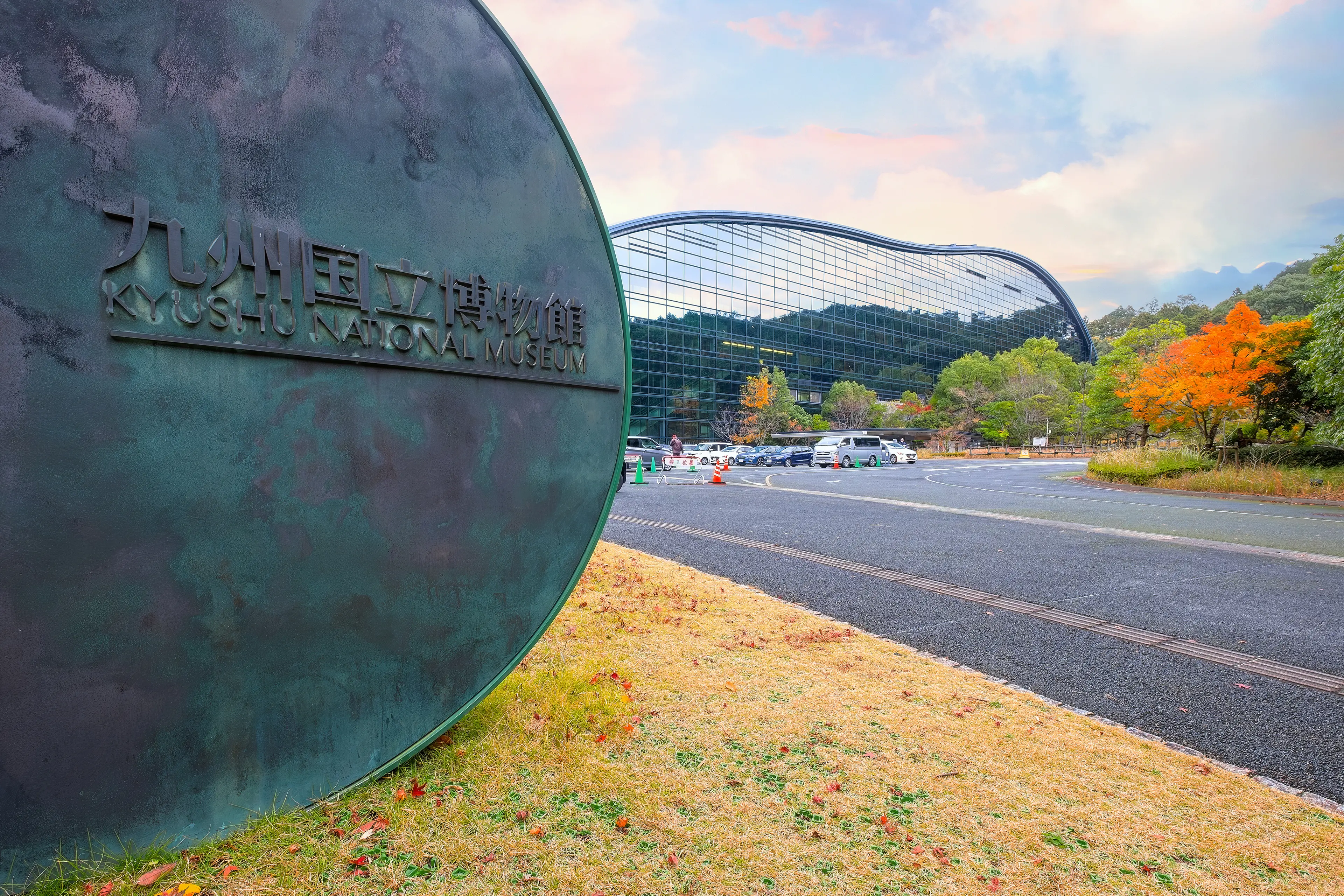Solo 3-Day Culinary and Sightseeing Adventure in Fukuoka, Japan
Fukuoka, Japan
3 days
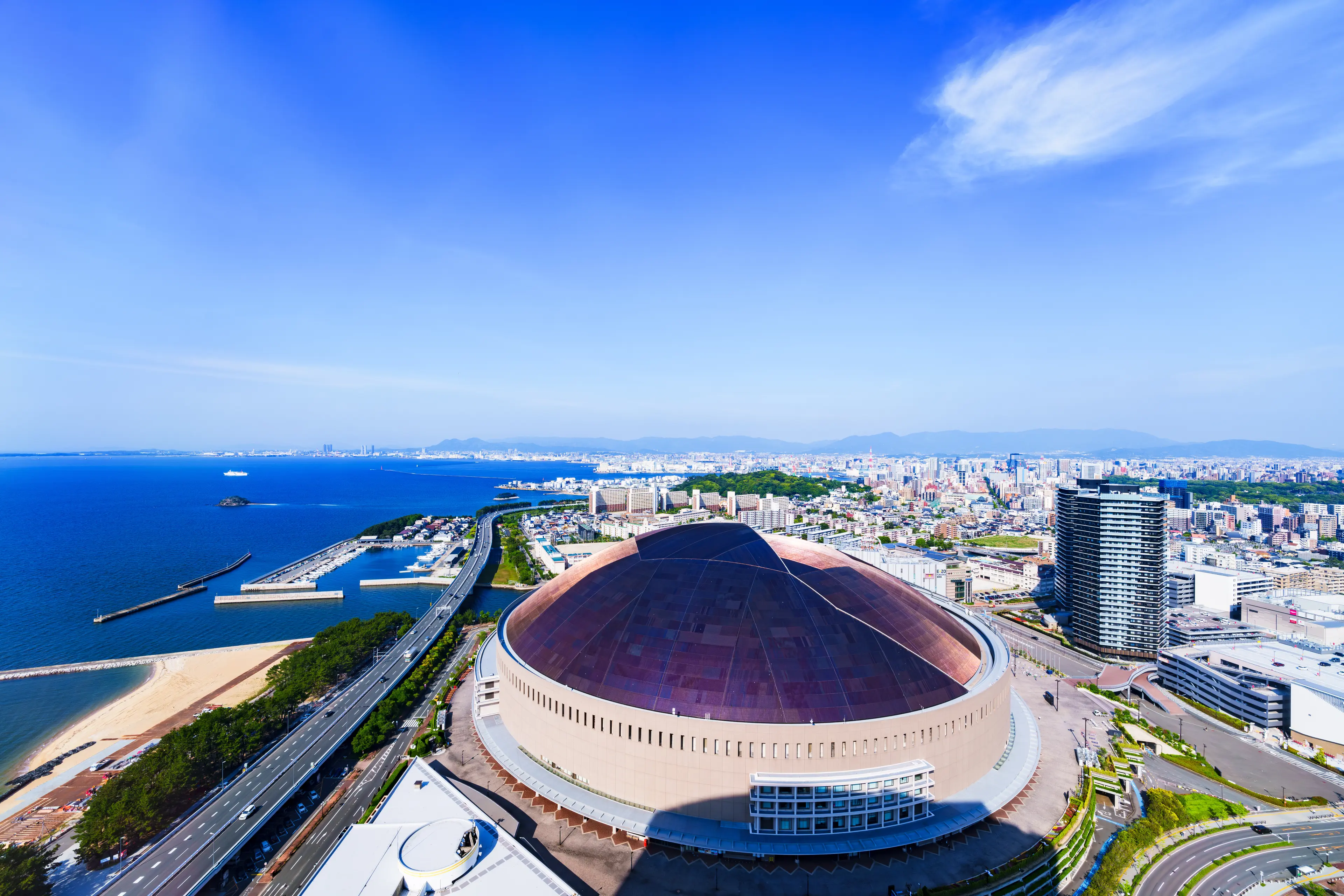
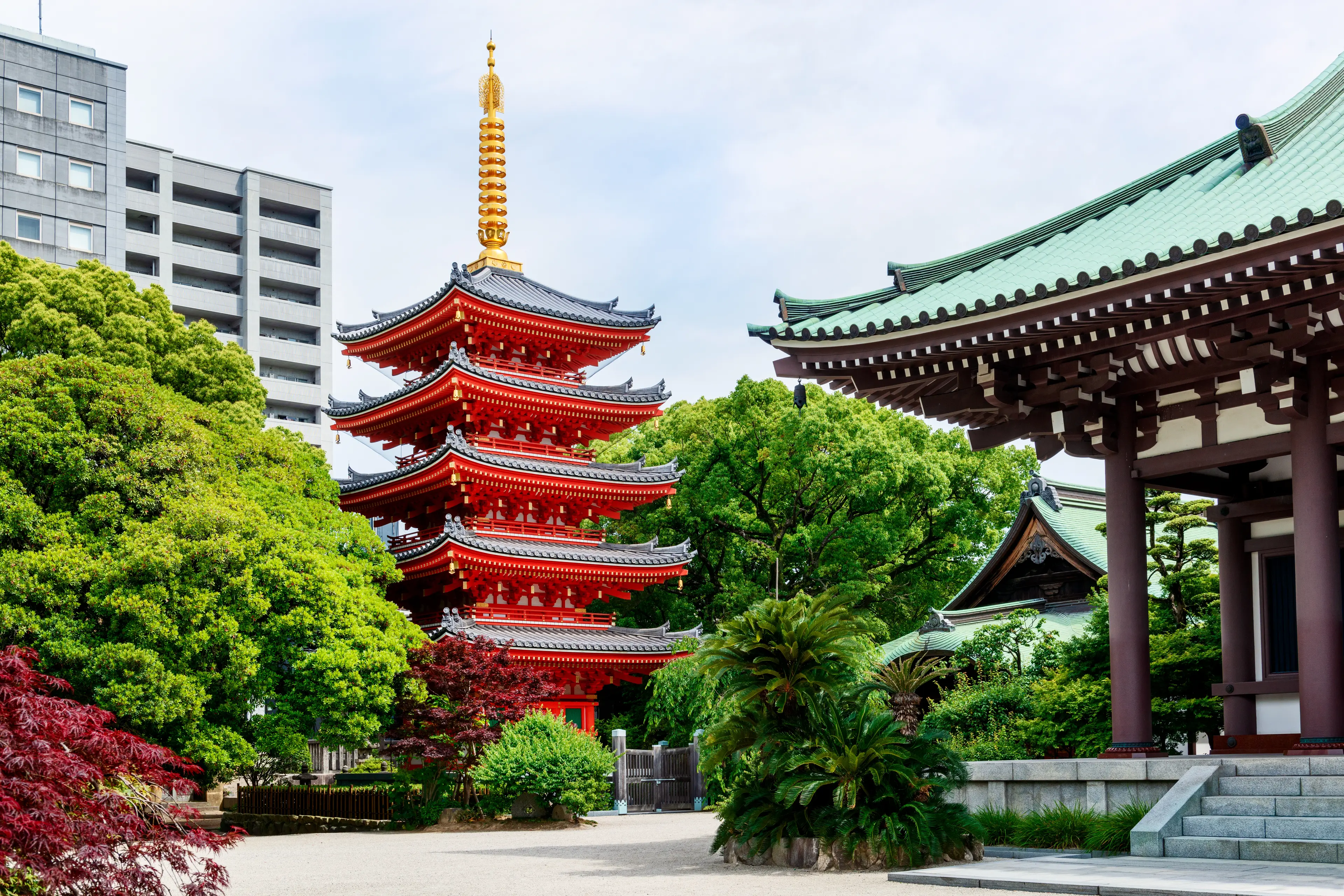
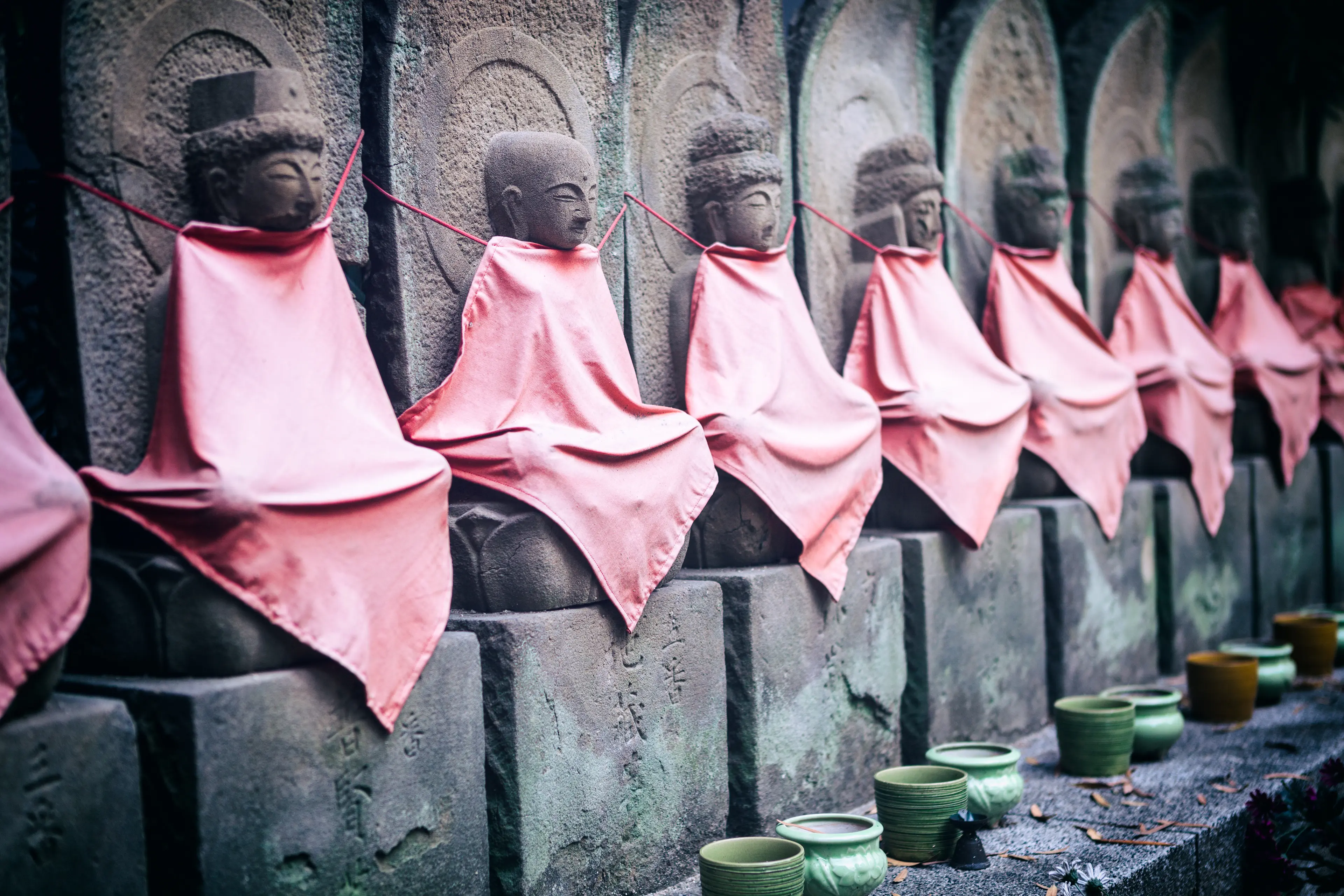
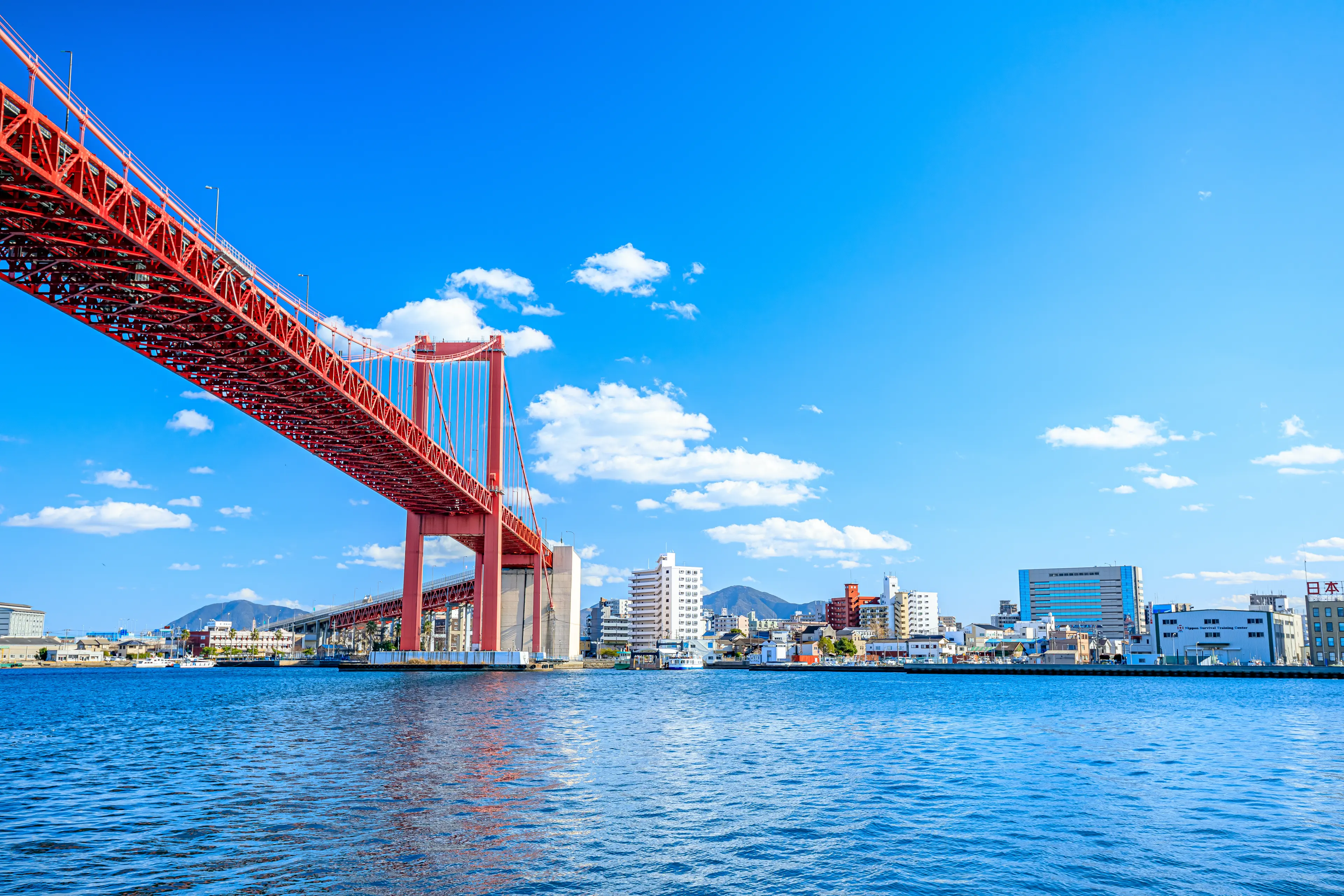
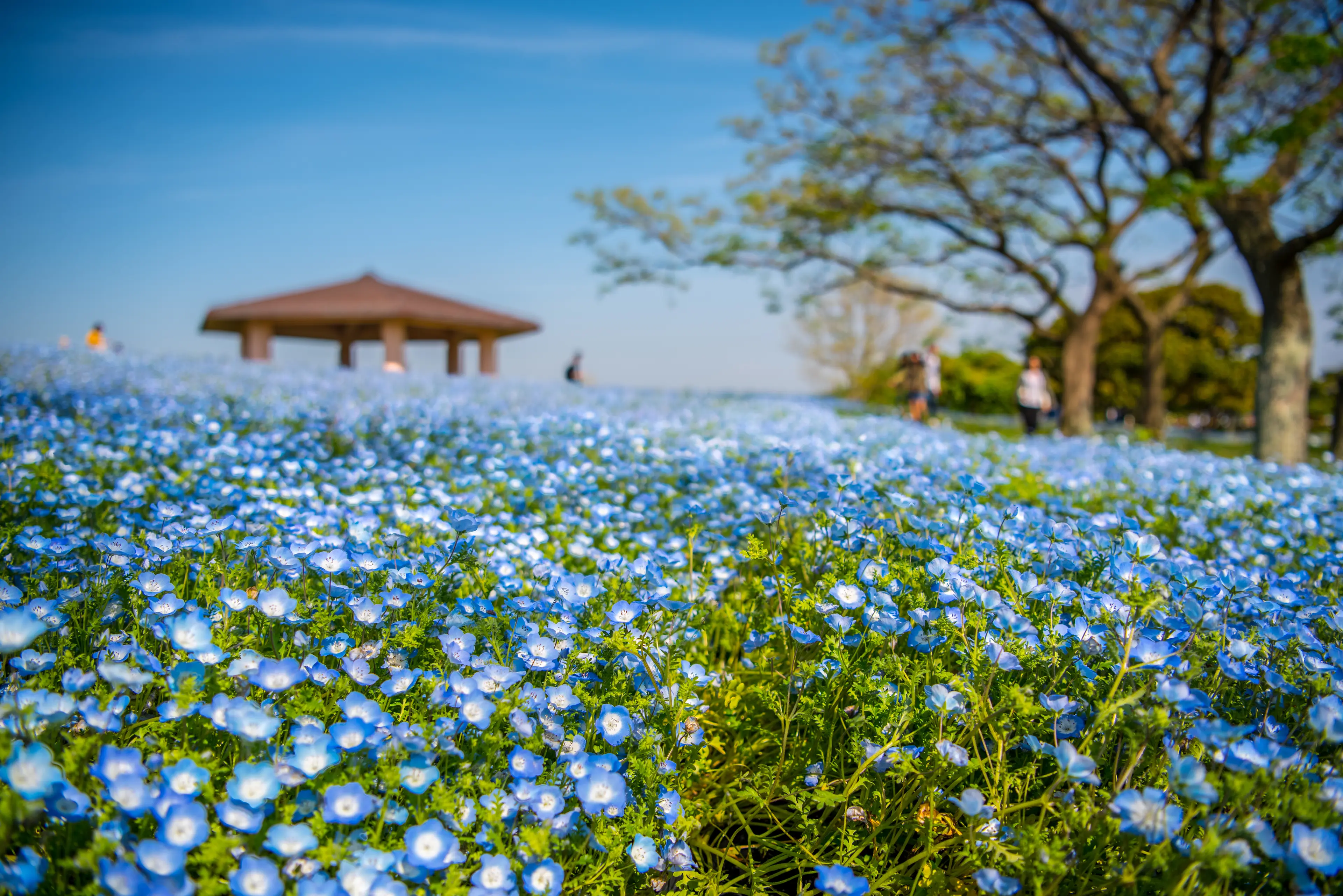
About Fukuoka, Japan
Experience the vibrant city of Fukuoka, Japan, a harmonious blend of modernity and tradition. As the gateway to Kyushu, Fukuoka boasts stunning beaches, ancient temples, and skyscrapers. Visit the historic Fukuoka Castle, explore the bustling Canal City shopping complex, or relax in the tranquil Ohori Park. Don't miss the city's famous Yatai (street food stalls), where you can savor local delicacies like Hakata Ramen. For a cultural immersion, attend a traditional tea ceremony or witness a sumo match. The city's nightlife is equally enticing with its array of bars, clubs, and karaoke spots. With its warm hospitality, Fukuoka promises an unforgettable Japanese experience.
3-Day Itinerary
Day 2
Historical and Spiritual Journey
Morning
Start your second day with a visit to the Dazaifu Tenmangu Shrine, a famous Shinto shrine dedicated to the god of learning. Take a leisurely walk around the shrine and enjoy the tranquil atmosphere.
Lunch
Have lunch in a local restaurant in Dazaifu. Try some Umegae mochi, a local specialty rice cake filled with sweet red bean paste.
Afternoon
Spend the afternoon exploring the Kyushu National Museum. Learn about the history and culture of Japan through the museum's extensive collection of artifacts.
Dinner
Enjoy a seafood dinner at a local restaurant. Fukuoka is known for its fresh seafood, so don't miss the chance to try some.
Evening
Visit the Fukuoka Tower at night to enjoy a panoramic view of the city. The tower is beautifully lit up at night, providing a stunning backdrop for your evening.
Day 3
Island Adventure and Local Cuisine
Morning
On your last day, visit the Nokonoshima Island Park. Enjoy the beautiful flowers and plants in the park, and take a leisurely walk along the beach.
Lunch
Have lunch at a local restaurant on Nokonoshima Island. Enjoy the fresh, local produce and seafood.
Afternoon
Spend the afternoon exploring the island. Visit the local shops and enjoy the laid-back atmosphere of the island.
Dinner
For your last dinner, head to a Yatai, a mobile food stall. Try some local street food and enjoy the lively atmosphere.
Evening
End your trip with a visit to the Kushida Shrine, a Shinto shrine in the Hakata ward. Enjoy the peaceful atmosphere and take some time to reflect on your trip.
Attractions in Itinerary (8)

1Ohori Park
A large and tranquil park featuring a beautiful pond at its center. It's a great place for leisurely walks, picnics, and boat rides.

2Fukuoka Art Museum
Home to a wide range of artworks from different periods and regions, including ancient Chinese ceramics and contemporary paintings.

3Canal City Hakata
A large shopping and entertainment complex, known for its distinctive architecture.

4Dazaifu Tenmangu Shrine
One of the most important Shinto shrines in Japan, dedicated to the spirit of Sugawara Michizane, a scholar and politician of the Heian Period.

5Kyushu National Museum
The 4th established national museum in Japan, focusing on Japan's history with other Asian countries.

6Fukuoka Tower
A 234-meter tall tower providing a stunning view of the city. Its mirrored exterior reflects the changing seasons.

7Nokonoshima Island Park
A park known for its seasonal flowers, offering stunning views of Fukuoka city and Hakata Bay.

8Kushida Shrine
A Shinto shrine that is over 1,200 years old. It is the center of the Hakata Gion Yamakasa Festival.
Local Food and Drinks (12)

Hakata Ramen
Fukuoka is famous for its Hakata Ramen, a local variety of ramen made with thin, firm noodles, rich pork-bone broth, and topped with slices of pork belly.

Motsunabe
Motsunabe is a popular hot pot dish in Fukuoka, made with beef or pork offal cooked in a flavorful soup with cabbage and garlic chives.

Mentaiko
Mentaiko is a specialty of Fukuoka, made from pollock roe that has been marinated in various seasonings. It's often eaten with rice or used as a topping for pasta.

Yakitori
Yakitori, skewered grilled chicken, is a popular street food in Fukuoka. Various parts of the chicken are used, each offering a unique flavor and texture.

Yatai Food
Fukuoka is known for its Yatai, or street food stalls, where you can try a variety of local dishes, including ramen, yakitori, and oden.

Oden
Oden is a type of Japanese hot pot that is popular in Fukuoka. It consists of various ingredients like daikon, tofu, and boiled eggs stewed in a soy-flavored broth.

Karaage
Karaage, Japanese-style fried chicken, is a popular dish in Fukuoka. It's typically marinated in soy sauce, ginger, and garlic before being deep-fried to a golden brown.

Udon
Udon is a type of thick wheat noodle that is commonly eaten in Fukuoka. It's often served in a soy-based broth with various toppings like green onions and tempura.

Sake
Fukuoka is known for its high-quality sake, a traditional Japanese rice wine. The region's climate and quality of rice make it ideal for sake production.

Shochu
Shochu is a distilled alcoholic beverage that is popular in Fukuoka. It can be made from a variety of ingredients, including barley, sweet potatoes, and rice.

Matcha Tea
Matcha tea is a type of powdered green tea that is commonly consumed in Fukuoka. It's known for its rich flavor and health benefits.

Amazake
Amazake is a traditional sweet, low-alcohol Japanese drink made from fermented rice. It's often consumed during the New Year's holidays in Fukuoka.
Best time to visit
The best time to visit Fukuoka, Japan as a tourist is during the spring (March to May) and autumn (September to November) seasons. During these periods, the weather is typically mild and pleasant, making it ideal for sightseeing and outdoor activities. Spring is particularly beautiful due to the blooming cherry blossoms, while autumn offers stunning fall foliage. However, if you're interested in festivals, July is a great time to visit as the city hosts the famous Hakata Gion Yamakasa festival.
How to get around
Subway
Fukuoka's subway system is a convenient and efficient way to get around the city. It consists of three lines: Kuko Line, Hakozaki Line, and Nanakuma Line, which cover most of the city's main attractions.
Bus
The city's extensive bus network can take you to places not covered by the subway. Buses are frequent and reliable, but can be slower due to traffic.
Taxi
Taxis are plentiful in Fukuoka and can be hailed on the street or found at taxi ranks at major stations and hotels. They offer a convenient but more expensive way to get around the city.
Bicycle
Fukuoka is a bike-friendly city with numerous cycle paths and bike rental shops. It's a great way to explore the city at your own pace.
Ridesharing
Ridesharing services like Uber are available in Fukuoka. It's a convenient way to get around, especially if you're not familiar with the public transportation system.
Car Rental
Renting a car can be a good option if you plan to explore outside of the city. However, keep in mind that traffic can be heavy and parking can be expensive in the city center.
Walk
Many of Fukuoka's attractions are within walking distance of each other, especially in areas like Tenjin and Hakata. Walking is a great way to explore the city and take in the sights.
Ferry
Ferries operate from Fukuoka to nearby islands and other cities. It's a scenic way to travel, especially if you have a little more time.
Train
Fukuoka is well-connected by train to other cities in Japan. The city's main station, Hakata Station, is a major hub for the Shinkansen (bullet train), as well as local and regional trains.
Important information
Currency¥ JPY
Time zoneUTC+9
Driving sideLeft
Emergency phoneAmbulance: 119; Fire: 119; Police: 110
Drinking waterYes
Power sockets
Voltage100 V
Things to know about Fukuoka, Japan as a first time visitor
1
Fukuoka is a safe city with a low crime rate, but as with any travel destination, it's important to stay vigilant and aware of your surroundings.
2
The official language is Japanese. While some locals may speak English, it's a good idea to learn a few basic Japanese phrases.
3
The currency used is the Japanese Yen (JPY). Credit cards are widely accepted, but it's always handy to have some cash for smaller establishments or street food stalls.
4
Tipping is not customary in Japan. In fact, it can sometimes be seen as rude or confusing.
5
Public transportation in Fukuoka is efficient and reliable. The city has an extensive subway, bus, and train system.
6
Fukuoka is known for its hot summers and mild winters. In summer (June - August), temperatures can reach up to 91°F (33°C). In winter (December - February), it can drop to around 41°F (5°C).
7
Fukuoka is a coastal city, so it can be quite humid, especially in the summer.
8
The city is also known for its delicious food. Don't miss out on trying local specialties like Hakata ramen and Mentaiko (spicy cod roe).
9
Smoking is not allowed in most public areas in Fukuoka, including restaurants and cafes.
10
The city is very pedestrian-friendly with plenty of sidewalks and pedestrian-only zones.
11
Fukuoka has a mix of traditional Japanese customs and modern culture. It's important to respect local customs and traditions.
12
The city is in the Japan Standard Time zone (JST), which is 9 hours ahead of Greenwich Mean Time (GMT+9).
13
Fukuoka has a number of convenience stores that are open 24/7, where you can buy a variety of goods including food, drinks, and toiletries.
14
The city has a good healthcare system. However, it's recommended to have travel insurance that covers health care costs.
15
Tap water in Fukuoka is safe to drink, but bottled water is also readily available.
16
Public Wi-Fi is available in many areas in Fukuoka, but it's a good idea to get a local SIM card or portable Wi-Fi for reliable internet access.
17
Fukuoka has a recycling culture. Be mindful of separating your trash according to the local guidelines.
18
The city is very clean, and littering is frowned upon. Always look for a trash bin or take your trash with you.
19
Fukuoka is a bustling city, but it also has many parks and green spaces where you can relax and enjoy nature.
20
The city has a vibrant nightlife with many bars, clubs, and restaurants that stay open late. However, keep in mind that public drunkenness is frowned upon.
Basic Japanese to know as a first time visitor
English phrase | Native phrase | Pronunciation | When to use it |
|---|---|---|---|
Hello | こんにちは | Konnichiwa | Greeting someone |
Goodbye | さようなら | Sayonara | Leaving or saying goodbye |
Thank you | ありがとうございます | Arigatou gozaimasu | Showing appreciation |
Excuse me | すみません | Sumimasen | Getting attention or apologizing |
Yes | はい | Hai | Agreeing or confirming |
No | いいえ | Iie | Disagreeing or denying |
I don't understand | わかりません | Wakarimasen | When you don't understand something |
Where is the bathroom? | トイレはどこですか? | Toire wa doko desu ka? | When you need to find the bathroom |
Can you speak English? | 英語を話せますか? | Eigo o hanasemasu ka? | When you need someone to speak English |
I'm sorry | ごめんなさい | Gomen nasai | Apologizing |
Please | お願いします | Onegaishimasu | Making a request |
Help! | 助けて! | Tasukete! | In an emergency |
I'm lost | 道に迷いました | Michi ni mayoimashita | When you're lost |
How much is this? | これはいくらですか? | Kore wa ikura desu ka? | When you want to know the price of something |
Where is...? | ...はどこですか? | ... wa doko desu ka? | When you're looking for something |
Water | 水 | Mizu | When you want water |
Food | 食べ物 | Tabemono | When you're talking about food |
Train station | 駅 | Eki | When you're looking for the train station |
Taxi | タクシー | Takushī | When you need a taxi |
Hotel | ホテル | Hoteru | When you're looking for your hotel |
Packing List
Clothing
Underwear (3 pairs)
Socks (3 pairs)
T-shirts (3)
Pants/Jeans (2 pairs)
Comfortable walking shoes
Light jacket or sweater
Pajamas
Swimwear (if planning to visit the beach or hot springs)
Toiletries
Toothbrush and toothpaste
Deodorant
Razor and shaving cream
Shampoo and conditioner
Body wash or soap
Face wash and moisturizer
Sunscreen
Makeup and makeup remover (if applicable)
Personal hygiene items
Travel documents and essentials
Passport
Driver's license (for ID purposes)
Credit and debit cards
Cash (Japanese yen)
Travel insurance documents
Hotel and transportation reservation confirmations
Emergency contacts and important addresses
Electronics and gadgets
Smartphone
Charger for smartphone
Universal power adapter
Headphones
Camera and charger
Portable power bank
Miscellaneous items
Travel pillow
Earplugs and eye mask
Snacks
Water bottle
Travel guidebook for Fukuoka
Japanese phrasebook or language app
Umbrella or raincoat
First-aid kit
Weather Conditions
When visiting Fukuoka, Japan, it's important to consider the city's climate to make the most of your trip. Fukuoka experiences a humid subtropical climate, which means it has four distinct seasons, each with its own weather patterns. Spring, from March to May, is a beautiful time to visit Fukuoka. The weather is mild, with average temperatures ranging from 50°F to 70°F (10°C to 21°C). It's also cherry blossom season, so you can enjoy the beautiful sakura trees in bloom. Summer, from June to August, can be hot and humid. The temperatures can reach up to 90°F (32°C), but on average, they hover around 80°F (27°C). This is also the rainy season, with June being the wettest month, so be sure to pack an umbrella or raincoat. Autumn, from September to November, is another great time to visit. The weather is comfortable, with temperatures ranging from 60°F to 75°F (16°C to 24°C). The fall foliage in Fukuoka is stunning, making it a popular time for sightseeing. Winter, from December to February, is relatively mild compared to other parts of Japan. The average temperature is around 45°F (7°C), but it can drop to 32°F (0°C) during the coldest months. Snow is rare, but it's not unheard of. Regardless of when you visit, it's always a good idea to check the forecast before your trip and pack accordingly. Layering is key, as it allows you to adjust to changing temperatures throughout the day. Don't forget essentials like sunscreen and a hat for the summer months, and a warm coat and scarf for the winter. Remember, the weather can change quickly, so it's always best to be prepared. Enjoy your visit to Fukuoka!
| Month | Hi / Lo (°C) | Weather Overview |
|---|---|---|
January | 11° / 3° | January is the coldest month in Fukuoka, with temperatures ranging from 3 to 11 degrees Celsius. It's a good time to visit if you enjoy cooler weather. |
February | 13° / 3° | February is still quite cold, with temperatures slightly higher than January. It's a great time to explore indoor attractions in Fukuoka. |
March | 16° / 6° | March sees a gradual increase in temperature, making it a comfortable time for sightseeing. Cherry blossoms start to bloom towards the end of the month. |
April | 20° / 10° | April is a beautiful time to visit Fukuoka, with cherry blossoms in full bloom and temperatures ranging from 10 to 20 degrees Celsius. |
May | 24° / 14° | May brings warmer weather, with temperatures ranging from 14 to 24 degrees Celsius. It's a great time to explore the city's parks and gardens. |
June | 28° / 18° | June marks the start of the rainy season in Fukuoka, so be prepared for some wet days. However, the temperatures are quite comfortable, ranging from 18 to 28 degrees Celsius. |
July | 33° / 23° | July is the hottest month in Fukuoka, with temperatures reaching up to 33 degrees Celsius. It's a great time to visit the beach, but be prepared for high humidity. |
August | 34° / 24° | August continues to be hot and humid, with temperatures slightly higher than July. It's a good time to visit if you enjoy summer activities. |
September | 30° / 20° | September sees a decrease in temperature, but it's still quite warm. It's a great time to explore the city's outdoor attractions. |
October | 24° / 14° | October brings cooler weather, making it a comfortable time for sightseeing. The autumn foliage in Fukuoka is also quite beautiful during this month. |
November | 19° / 9° | November is a great time to visit Fukuoka, with mild temperatures and beautiful autumn foliage. It's a great time to explore the city's parks and gardens. |
December | 15° / 5° | December is a cool month in Fukuoka, with temperatures ranging from 5 to 15 degrees Celsius. It's a good time to visit if you enjoy cooler weather. |
Did you know?
Places near by Fukuoka, Japan

Dazaifu Tenmangu
A Shinto shrine known for its plum trees and historical significance.

Yanagawa
A city known for its beautiful canals and traditional boat tours.

Karatsu Castle
A beautiful castle with panoramic views of the city and sea.

Nagasaki
A city known for its historical significance and beautiful views.

Beppu
A city famous for its hot springs and 'hell' tours.

Aso-Kuju National Park
A national park known for its active volcano and beautiful landscapes.

Kumamoto Castle
One of the most impressive castles in Japan.

Hiroshima
A city known for its historical significance and peace memorial park.

Yakushima
An island known for its ancient cedar forests and hiking trails.

Osaka
A bustling city known for its modern architecture and street food.
